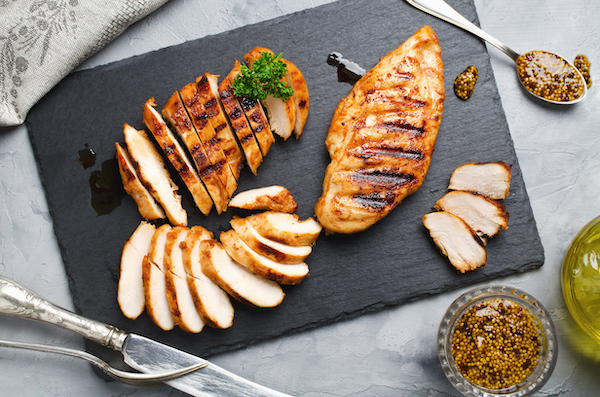3x Mall Insights
Exploring the latest trends and news in online shopping.
Lean, Mean Protein Machine: Fuel Your Fitness Revolution
Unlock your fitness potential! Discover how to power up with protein in our Lean, Mean Protein Machine guide. Fuel your revolution today!
The Ultimate Guide to Protein: How Much Do You Really Need?
Protein is an essential macronutrient that plays a critical role in building and repairing tissues, producing enzymes and hormones, and supporting overall health. But how much do you really need? The recommended dietary allowance (RDA) for protein varies based on several factors such as age, sex, and level of physical activity. For the average adult, the RDA is set at 0.8 grams of protein per kilogram of body weight. However, active individuals and athletes may require more to support muscle repair and growth, typically ranging from 1.2 to 2.0 grams per kilogram of body weight, depending on their training intensity and goals.
To determine your specific protein needs, you can follow these simple steps:
- Calculate your weight in kilograms. (Weight in pounds ÷ 2.2)
- Identify your activity level: sedentary, moderately active, or very active.
- Use the appropriate protein multiplier based on your activity level: 1.0 for sedentary, 1.2–1.6 for moderately active, and 1.6–2.0 for very active individuals.

Top 10 Protein Sources to Supercharge Your Workouts
When it comes to enhancing your workouts, protein plays a crucial role in muscle recovery and growth. Incorporating optimal protein sources into your diet can significantly supercharge your training regimes. Here are the top 10 protein sources that you should consider adding to your meal plans:
- Chicken Breast
- Greek Yogurt
- Eggs
- Quinoa
- Salmon
- Lentils
- Tofu
- Cottage Cheese
- Beef
- Chickpeas
Each of these sources not only provides the protein needed for muscle repair but also additional nutrients that fuel your workouts and overall health.
Is Plant-Based Protein as Effective as Animal Protein for Muscle Growth?
The debate over whether plant-based protein is as effective as animal protein for muscle growth has gained significant attention in recent years. Both sources of protein provide essential amino acids necessary for muscle repair and development, but they differ in their amino acid profiles. Animal proteins are classified as 'complete' proteins, containing all nine essential amino acids, while most plant proteins are considered 'incomplete.' However, by consuming a variety of plant-based proteins, such as legumes, nuts, and grains, individuals can easily obtain a balanced amino acid profile, which is critical for optimal muscle growth.
Research suggests that the overall effectiveness of plant-based protein for muscle synthesis can be comparable to that of animal protein. Several studies indicate that individuals who follow a plant-based diet can still achieve substantial muscle gains when consuming adequate amounts of protein. Factors such as total caloric intake, meal timing, and exercise regimen also play a crucial role in muscle development. It is essential for athletes and fitness enthusiasts to focus on meeting their protein needs, regardless of the source, and incorporate a diverse range of protein-rich foods to support their fitness goals.